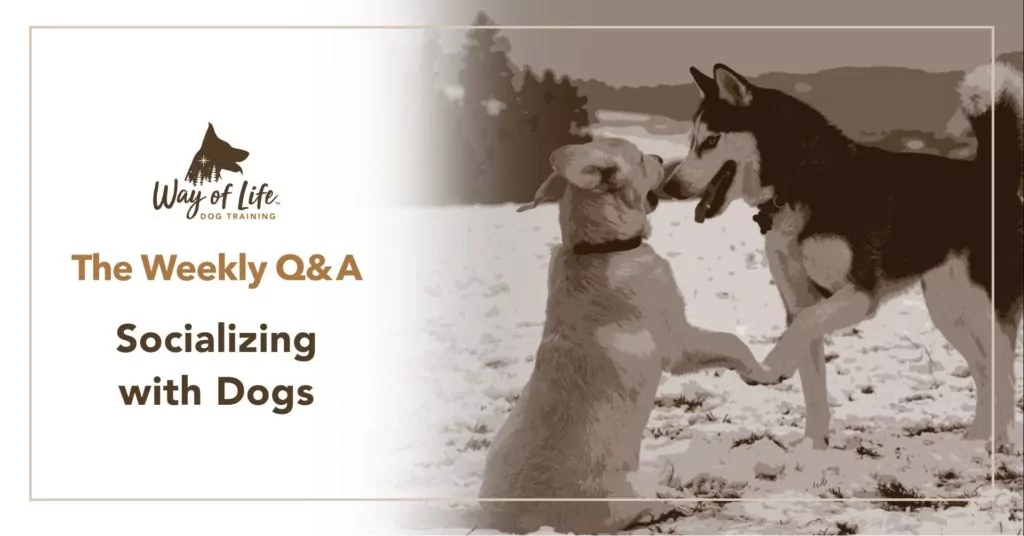
Q: I have a 14-month-old male collie. At 4 months of age, I noticed issues with his gait, and told it was growing pains until he saw an orthopedic surgeon who diagnosed him at six months with development elbow dysplasia in both elbows. He went through surgery and then a three-month rehab where he was isolated and very restricted. He was a lovely little boy, and accepted everything that was done to him. Since rehab, he walks lots with me, and gets along well with my other dog and our friends’ dogs that he knows. With other dogs, he is nervous, and because he is still intact, there have been dogs that have lunged at him. He now tends to bark at situations, although I have been taking a leash manners class and working on my walking with him which has helped. My concern is that he is not socializing enough with other dogs. My past dogs were socialized as pups and got along with everyone. I would like to work on his anxiety in a real world setting and on his socialization with other dogs.
A: First, I would like to congratulate you for taking such good care of your collie, from realizing something was wrong to being careful with him until he was able to get the surgery and rehabilitation that he needed. Now you are facing difficulties with socializing him so let’s talk about why that is and our perspective on the important issues you raise.
When dogs are born with medical issues and must deal at a young age with medical examinations and interventions, including painful procedures and months of rehabilitation, we can all appreciate the impact this could have on their development and the formation of their personality.
I was mentored by an individual who thought our dogs require less, rather than more, handling by people. When dogs exhibit issues of any kind, sometimes this is the result of what he called “too much human interference.” Your collie was not able to simply enjoy his childhood and grow the strength that comes from having been allowed to be a kid. Rather, he had to endure months of human handling, poking, and prodding. In my view, this easily explains why he would be less inclined to be social, wouldn’t you agree?
Not only is this preference a normal response to his circumstances, but I believe it is a preference that is to be respected not just in your dog but in all dogs. Please help me here and show me where it says that dogs should “get along with everyone”? Do you get along with everyone? Do you socialize with every person you meet?
We have imposed this terrible idea on dogs who as canines, are even more selective than we are. They are predators at the core and descend from wolves, but we forget that and want them liking everyone and everything. I don’t blame you for thinking the way you do. It’s become religion, this idea of wanting dogs social. And yet I know how detrimental it is because I see firsthand what happens when we protect and curate our dogs’ social experiences.
I for one raise dogs and coach my clients in raising dogs who get along with their family members and a few friends, and tolerate everyone else. I do not impose people or dogs on my dogs and nor should you if you wish to preserve your relationship with your dog.
I assure you, for him to be social with your other dog and his friends is plenty already. By escalating to anxiety and reactivity, he is trying to tell you to quit asking for more. He is not being attacked for being intact – this is another one of those circulating myths, the idea that neutered males can’t help attacking intact ones. Rather, your dog is a target not because he is intact but because he is insecure, feeling misunderstood and lacking the support of his owner.
So what if your past dogs liked everyone? This one does not and I would take the lesson of respecting my dog’s wishes. His behavior is not about anxiety or a lack of leash manners; it is simply him asking you to respect his desire, as he has been through a lot already. In this case, the solution to your perceived problem is but a change in your perception.